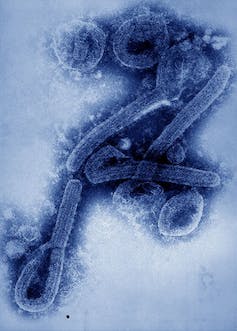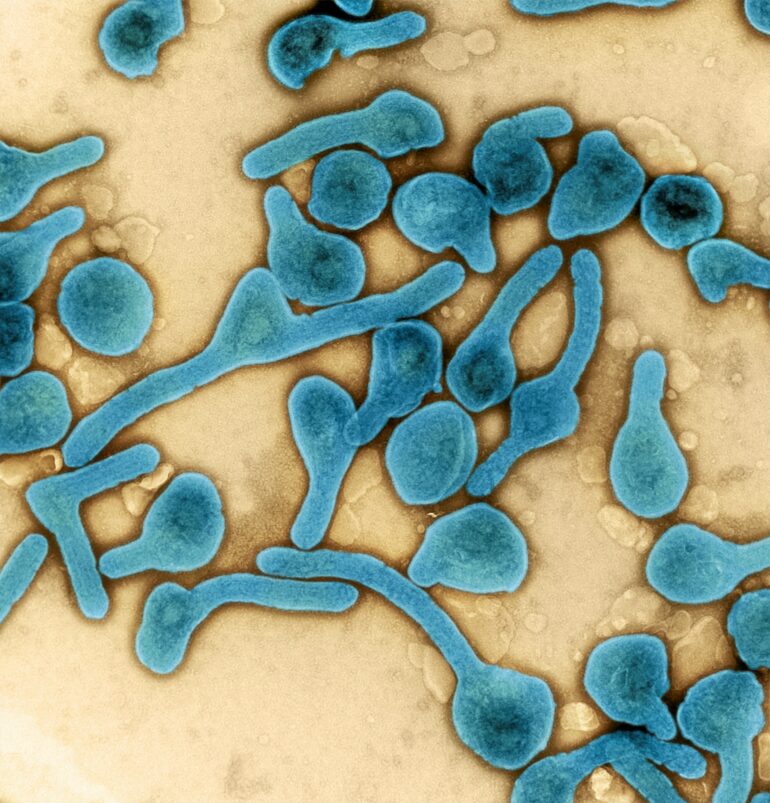The World Health Organization confirmed an outbreak of the deadly Marburg virus disease in the central African country of Equatorial Guinea on Feb. 13, 2023. To date, there have been 11 deaths suspected to be caused by the virus, with one case confirmed. Authorities are currently monitoring 48 contacts, four of whom have developed symptoms and three of whom are hospitalized as of publication. The WHO and the U.S. Centers for Disease Control and Prevention are assisting Equatorial Guinea in its efforts to stop the spread of the outbreak.

Marburg virus is structurally similar to the Ebola virus.
Photo12/Universal Images Group via Getty Images
Marburg virus and the closely related Ebola virus belong to the filovirus family and are structurally similar. Both viruses cause severe disease and death in people, with fatality rates ranging from 22% to 90% depending on the outbreak. Patients infected by these viruses exhibit a wide range of similar symptoms, including fever, body aches, severe gastrointestinal symptoms like diarrhea and vomiting, lethargy and sometimes bleeding.
We are virologists who study Marburg, Ebola and related viruses. Our laboratory has a long-standing interest in researching the underlying mechanisms of how these viruses cause disease in people. Learning more about how Marburg virus is transmitted from animals to humans and how it spreads between people is essential to preventing and limiting future outbreaks.
Marburg virus disease
Marburg virus spreads between people by close contact only after they show symptoms. It is transmitted through infected body fluids such as blood, and is not airborne. Contact tracing is a potent tool to combat outbreaks. The incubation time, or time between infection and the onset of symptoms, ranges from two to 21 days and typically falls between five and 10 days. This means that contacts must be observed for extended periods for potential symptoms.
Marburg virus cannot be detected before patients are symptomatic. One major cause of the spread of Marbug virus disease is postmortem transmission due to traditional burial procedures, where family and friends typically have direct skin-to-skin contact with people who have died from the disease.
There are currently no approved treatments or vaccines against Marburg virus disease. The most advanced vaccine candidates in development use strategies that have been shown to be effective at protecting against Ebola virus disease.
Without effective treatments or vaccines, Marburg virus outbreak control primarily relies on contact tracing, sample testing, patient contact monitoring, quarantines and attempts to limit or modify high-risk activities such as traditional funeral practices.
What causes Marburg virus outbreaks?
Marburg virus outbreaks have an unusual history.
The first recorded outbreak of Marburg virus disease occurred in Europe. In 1967, laboratory workers in Marburg and Frankfurt in…



